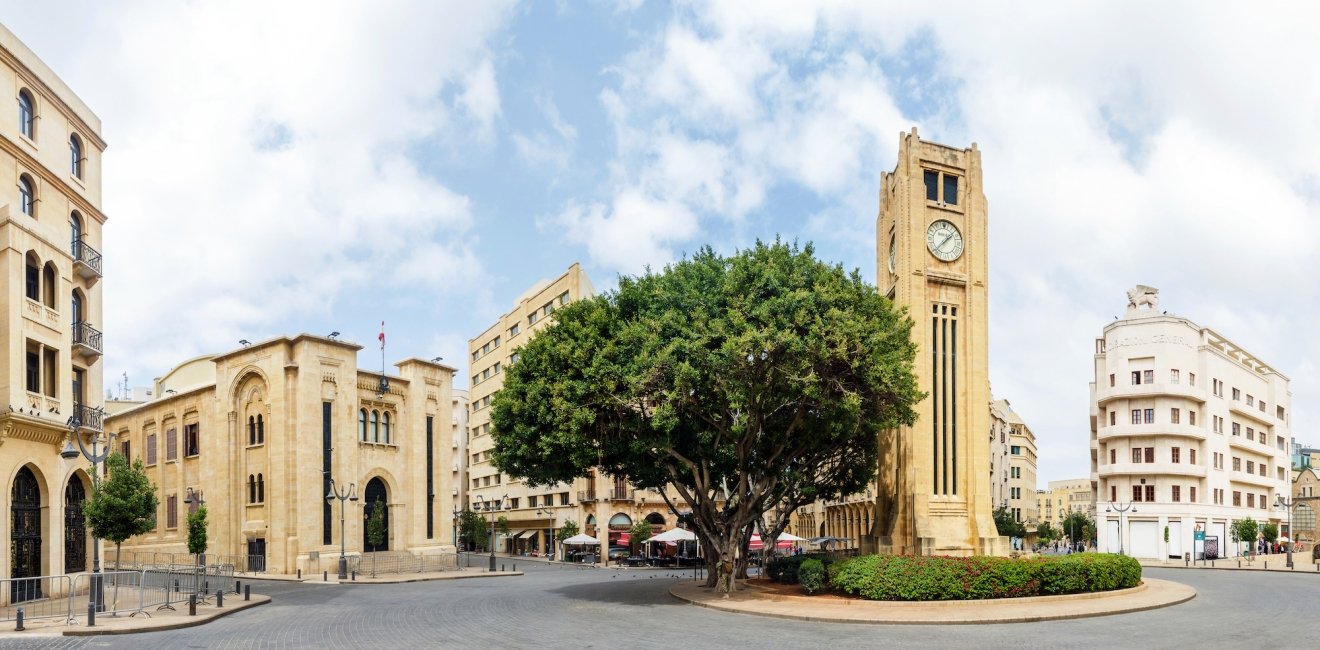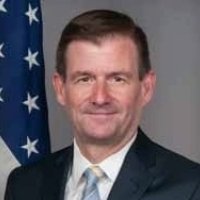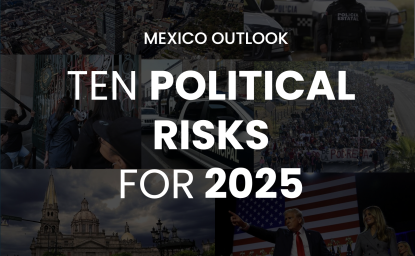The dichotomy between Lebanon's political elite and the public is pronounced. The elites are focused on power politics over the election of a president, while trying to see if the painful but essential IMF reform plan can be evaded. The public is angry with the literal and figurative bankruptcy of their nation; the Gallup Global Emotions Report for 2022 indicated Lebanese were the second angriest people among those polled in 122 countries, only one point behind the Afghans. Yet for now, this popular mood, constrained by a sectarian system that makes grassroots unity hard, has not been transformed into meaningful political pressure.
This paralysis is compounded by the vacancy in the presidency; the Sunni prime minister is acting president, but with only symbolic status.
At the best of times, Lebanon's structures of governance barely function. This is by design, to ensure no single sectarian faction or group can dominate the others. But this is the worst of times. The Najib Mikati government was not confirmed before President Michel Aoun left office on schedule on October 30, 2022, so is itself in caretaker status with legal constraints on its scope of action. This paralysis is compounded by the vacancy in the presidency; the Sunni prime minister is acting president, but with only symbolic status. Someone close to Prime Minister Mikati likened his role to that of a building concierge; he can change a lightbulb or fix a window, but nothing more.
The Presidential Waiting Game
The main Lebanese political players are plunged into the nation's every-six-year crisis over the election of a Maronite president, a power vested in parliament. Victory requires de facto support from two-thirds of its members, which is the threshold for a quorum. The current parliament is fragmented; no candidate at this point has sufficient support to reach that target, or even a majority. If ever there was a moment for Lebanese political elites to play by new rules, this would be it.
However, true to past practice, most of the candidates have positioned themselves for a long waiting game for the actions and reactions of the perceived powerbrokers. Since the main Christian players are directly or indirectly competing for the office, Lebanon's Muslim leaders play a decisive role. Lebanon's Sunnis are at present weak and leaderless. With Saad Hariri's absence, the Sunni participation level in the 2022 parliamentary election was low.
Through a process of elimination, the leading Shia party, Hezbollah, appears poised once again to be the kingmaker. However, it must manage a fierce rivalry between its own Maronite allies, Suleiman Frangieh, Jr. and former Foreign Minister Gebran Bassil, head of the Aounist Free Patriotic Movement party – although it is a distortion of Lebanese politics to define either simply by their relationship with Hezbollah.
At this point, there is no real sign of foreign engagement beyond traditional statements of principle, although Lebanese are watching closely.
Lebanese variously expect, fear, or invite foreign intervention from states with vested interests in Lebanon, such as Saudi Arabia, Qatar, France, Iran, the U.S., and Syria. Outsiders may scoff at this attitude, but it is undeniable that more than half of the Lebanese Republic's thirteen elected presidents were chosen in processes brokered or influenced by foreign states. At this point, there is no real sign of foreign engagement beyond traditional statements of principle, although Lebanese are watching closely.
In any case, whoever gets the nod for the presidency will come to office as part of a package that includes a choice of the Sunni prime minister, composition of the confessionally balanced cabinet, an IMF strategy, and plan for the 2025 parliamentary electoral law which will influence who wins. All of Lebanon's major sectarian leaders will have a say in the package.
Reform and Grow, or Don't and Collapse
Not only is there no engine pushing forward this complicated electoral process, but no timetable to pull it toward an end. June 2023 offers one possible informal deadline to force movement when the term of Central Bank Governor Riad Salame ends. Salame holds one of the country's top four Maronite sinecures. Selection of a successor is impossible without a president, while a renewal of his term is politically unlikely. The Shia vice governor is next in line to act in the event of a vacancy, which would create a sectarian imbalance. The outcome is important to the United States, almost as important as the choice of a president. A respected new governor is critical if a reform agenda is to restore confidence in Lebanon's financial institutions and currency. Confidence requires a governor who not only can act on the IMF plan, but is committed to a strong counterterrorist financing and anti-money laundering partnership with the global financial community.
Municipal elections are scheduled for May. There is no legal or practical reason for the paralysis at the national level to impede their conduct, which would give the public an opportunity to signal their demands. However, that very point may motivate presidential contenders to postpone local elections. Given public hostility toward vested interests, would-be presidential candidates and their allies may prefer to avoid any risky local popularity tests.
Lebanon's stability and viability are at stake. The paralysis and distraction of a long presidential vacancy have suspended the necessary work for fulfillment of the IMF package, a first step to restoring Lebanese economic and financial stability. Reform laws required to unlock the IMF program cannot be adopted without a president, and this hyper-politicized environment makes them unpopular in any case. Elite support for the IMF package is softening. Steady incoming remittances, stabilized foreign reserves, and the still ephemeral prospect of offshore gas revenue are cited as reasons to sidestep IMF pain and enable the corrupt and self-serving to have a few more final turns on the merry-go-round. This is dangerous and delusional thinking. The real choice before the Lebanese is this: reform and grow or conduct business as usual and collapse.
American Policy
American support for the army and gendarmerie remains popular and is a cornerstone of U.S. strategy, although domestic political constraints have kept Lebanon from moving toward fulfillment of UNSCR 1701, which called for the army to take over the south. America's "tough love" stance, linking structural aid to implementation of structural reforms, is respected. America has led the way in humanitarian relief since the 2020 port explosion, with $800 million in aid provided to capable partners outside government.
The U.S.-brokered October 2022 Lebanon-Israel maritime deal enabling offshore energy exploration and extraction was welcomed by many. Over time, it may bring not only economic benefits, but counter the logic of "resistance" to a non-existent Israeli occupation. The maritime deal is proof that a diplomatic resolution of border anomalies can work, instead of a status quo approach in the south that serves Iran alone. But any generation of income will occur later, and we have yet to see a strategy that deals effectively with Hezbollah and its Iranian-provided arms.
The Lebanese presidential election is both a problem and an opportunity for American diplomacy. The U.S., France, and Saudi Arabia issued an unusual joint statement at the opening of the UN General Assembly in September 2022 calling for timely elections to enable progress on reforms. It showed the goodwill and determination of three key allies of the Lebanese people and state and provides a platform for careful application of their combined leverage.
An excessive distancing by America will cede the field to others with less benign interests, while pressure to fill the vacancy at any cost could produce a regrettable result.
As yet, there is no indication of their next step. There is no reason for foreign states ever again to broker the choice of Lebanon's presidents, but America's absence will almost guarantee that other states and their proxies will be enabled to do so. Moreover, incessant finger-wagging over the perils of the vacancy can have unintended consequences. The presidential vacancy is bad, but a stampede toward electing the wrong president would be worse. It is of course for the Lebanese to judge who is best suited to reflect their will and to work with parliament and the cabinet to press forward with reforms. But an excessive distancing by America will cede the field to others with less benign interests, while pressure to fill the vacancy at any cost could produce a regrettable result.
Successful Statecraft
Successful American statecraft at this juncture requires energetic effort at multiple levels. U.S. officials should not appear to be vetting presidential candidates, but they should remain in respectful and continuous communication with all communities and their leaders – including presidential candidates – except those with a record of advocating or conducting terrorism. This is not a time for sanctions of those we disagree with or a "hands-off" approach to promote an image of disinterested neutrality that few will credit anyway.
This is a time to build consensus – the only way a president gets elected – which means working across Lebanese fault lines. America should be partisan, not neutral, but for a single cause: the restoration of a stable and healthy Lebanon through reform of the state. Simply talking about it won't produce results, nor will just blaming sources of the problem, such as corruption and Hezbollah; achievement will come from working to build a constituency of diverse power players who will see an interest in supporting change.
America's cause should be strengthening the state and its institutions, weak as they are. Every move that helps rebuild the state, even those taken in step with imperfect partners, is a move that undercuts Hezbollah. Without a functioning state, any long-term ambition to contain Hezbollah and other sources of violence and instability arising from Lebanon will fail.
The views expressed in these articles are those of the author and do not reflect an official position of the Wilson Center.






